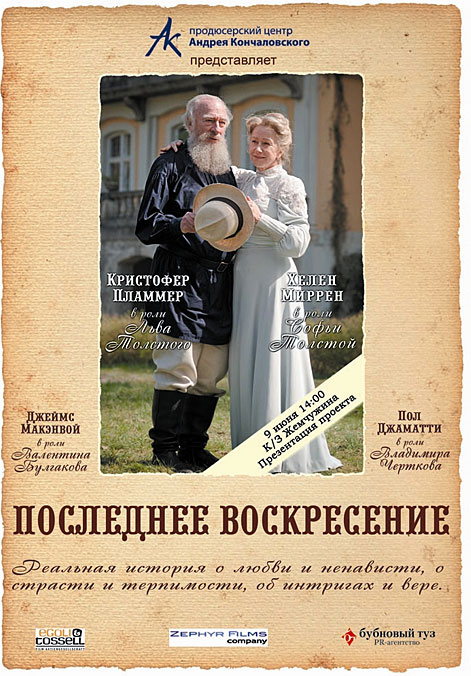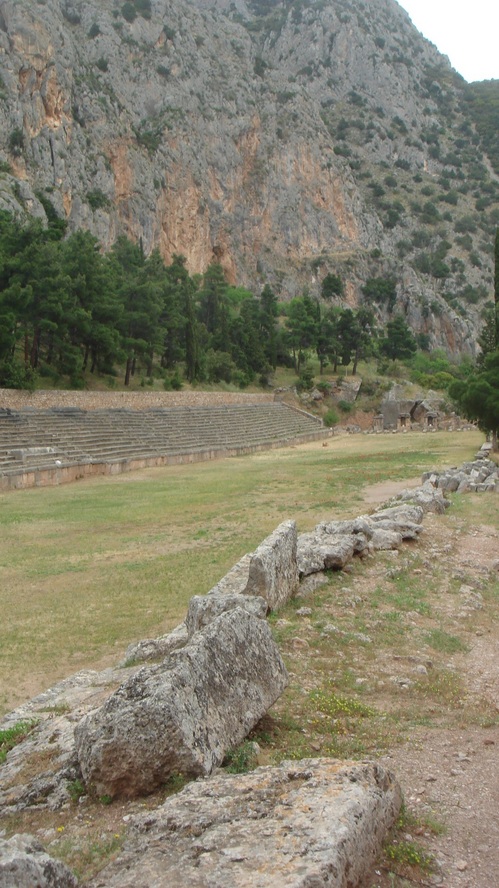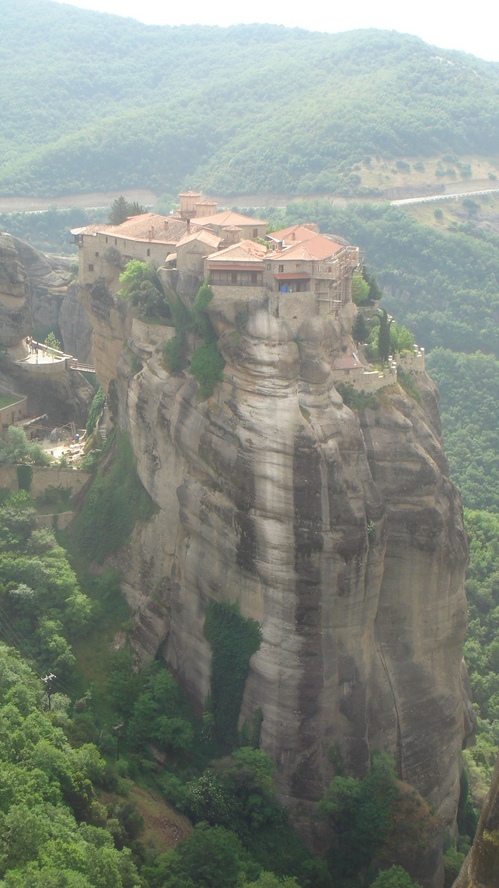There are not many features films made in Russia these days, but one that is both outstanding and heavily nominated for awards is ‘The Last Station’, the story about the end of Leo Tolstoy’s life. Yes of course the movie is in English, and since it is coming out on DVD next week, now is the time to review it. Leo Tolstoy by almost all evaluators, is considered one of the 3-4 best writers of the modern era, not least for his Anna Karenina and War and Peace. But what is less well known is the story of Tolstoy’s later life as a devout Christian, who spawned a Christian movement that the Orthodox church made the mistake of seeing as heretical. This film is about the last months of Tolstoy’s life, and about that movement, and about Tolstoy’s somewhat stormy relationship with his wife Sophia.
Let me just say first, that even if this movie had no historical merit, the performances of Christopher Plummer as Leo and Helen Mirren as Sophia are spectacular and all by themselves make this a great movie to watch. There is also a very fine portrayal by Paul Giamatti of Tolstoy’s main assistant in the movement Vladimir Chertkov and James McAvoy as Valentin Bulgakov, as well as a fine performance by Kerry Condon that makes this film a joy to watch. It is unfortunate this movie did not come out until January of this year, as it surely would have won more awards had it been released in the Fall of 2009. Here below is a plot summer from IDMB.com—
“In 1910, acclaimed Russian novelist Leo Tolstoy, in the later
stage of his life, works rather than a writer but as the leader of the
Tolstoyan Movement, whose basic tenets are brotherly love and world
peace through pacifism, and a denouncement of material wealth and
physical love. His chief follower is Vladimir Chertkov, who does
whatever he requires to advance the cause. Chertkov hires a young man
named Valentin Bulgakov to be Tolstoy’s personal secretary in carrying
out this work. Once ensconced in the life on the estate where much of
the work is taking place, Bulgakov quickly learns that many there take
from the movement only what he/she wants/believes. Also chief amongst
the movement’s wants is the deeding of all Tolstoy’s writings to the
people so that after his death it will become public domain. Tolstoy’s
wife, the Countess Sofya Andreevna Tolstoy, believes that her husband’s
writings are rightfully hers after he passes, as she wants and believes
she deserves the monetary benefits derived from such. This places a
strain between those in the movement, especially Chertov and the
Tolstoy’s daughter Sasha, and the Countess. Bulgatov acts as the
mediator between the parties, he who feels he needs to do what is truly
in Tolstoy’s heart regardless of what Tolstoy may say or do”.
Written by
Huggo
The film lasts about two hours, and since I saw it in edited form on a plan returning from Turkey I gather there is a little more skin in this film than I saw, but not much since the running times of what I saw and the movie in theaters is close to the same. Tolstoy sought to set up a Christian movement that worked for world peace (through pacificism), a movement which also focused on muscular discipleship and also on love as guiding principles. Not surprisingly the more overtly Christian aspects of the story are not to the fore in this film, but rather the soap opera like story of the relationship between Leo and Sophia, as well as between Maasha and Valentin. This being said, what we find then is a story about a struggle over Tolstoy’s legacy, specifically his writings. His wife believed she had a right to the royalties from these books when Leo passed, but the movement wanted to put the books into the public domain. Eventually, through legal and political action, Sophia won this battle in 1914. It was clearly a matter of some rancor.
The cinematography in this film is wonderful, as is the character development and interplay, and the movie does a good job of portraying the pathos of estranged husband and wife at the end of Tolstoy’s life. I have seldom been so moved by the end of a film. Whether you have read Tolstoy’s classic novels or not, as a Christian person you should study Tolstoy’s later Christian writings and the movement it spawned. In various ways Tolstoy’s legacy is much like that of C.S Lewis, except that Tolstoy was a much better novelist that Lewis. This is a part of our Christian heritage we need to recover and rethink, and this film gives us the opportunity to do so.


